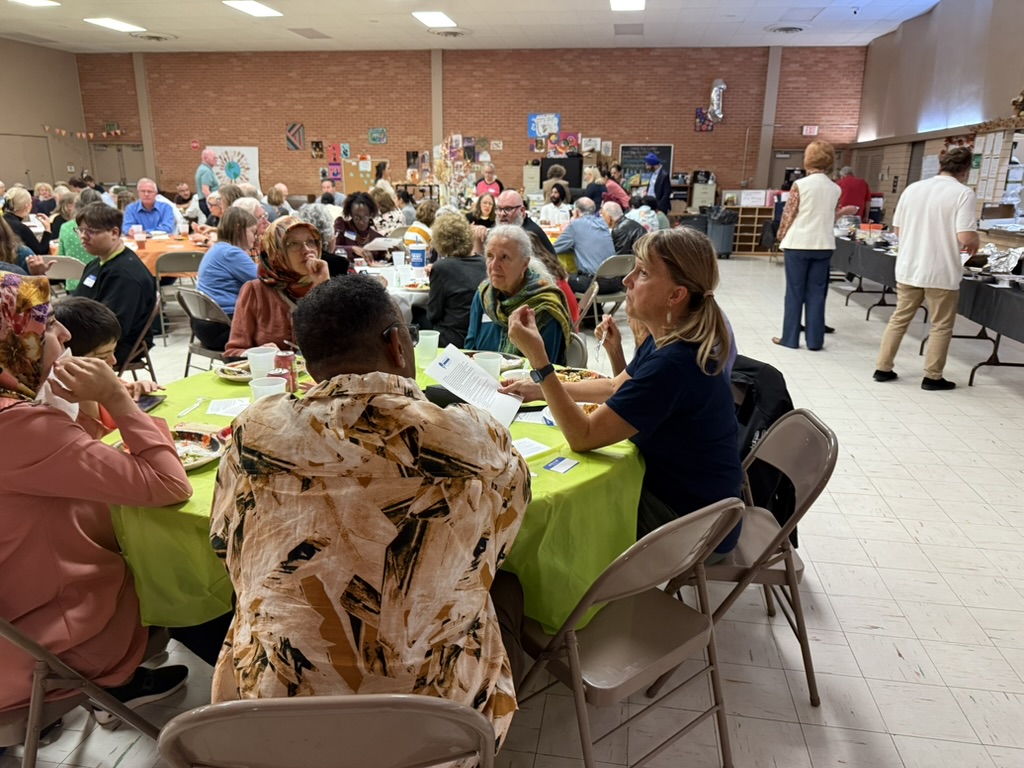
Tom Friedman argues that humanity is currently facing two immense challenges:
- Automation and Artificial Intelligence
- Climate Change
These forces are reshaping our world at an overwhelming pace, creating deep anxiety for many.
However, I believe he overlooks a third critical challenge: the loneliness of individuals and the isolation of groups.
Individual loneliness has become both a public health and mental health crisis. At the same time, group isolation—exacerbated by increasing cultural and religious diversity, along with fear-based social media—has eroded social trust.
Last spring, Paths to Understanding brought together 70 people from over 25 communities using one of humanity’s oldest strategies for connection: sharing food and conversation.
For as long as we’ve been human, meals and conversation have brought us together. Yet modern life—longer work hours, economic mobility, lengthy commutes, fractured news sources, and other factors—has weakened these bonds.
Despite this, we’ve witnessed remarkable outcomes from Let’s Go Together. A Muslim and a Christian now meet regularly for coffee. Connections between Indigenous and other diverse communities are increasing. People are visiting each other’s communities, volunteering together, and hosting potlucks of their own.
What began as a single, planned event has sparked the kind of organic human connections and group cooperation we desperately need.
As we move forward with the Potluck Project (formerly Potluck for Democracy) in partnership with Seattle University’s Center for Ecumenical and Interreligious Engagement, we hope to see this same ripple effect. In our national tour, we will gather leaders for a potluck and then encourage them to host similar gatherings in their neighborhoods.
Through this simple act, people will get to know one another. Groups will form connections and partnerships. It’s a profoundly human way to rebuild trust and foster cooperation.
Somehow, we’ve forgotten that we have this power.
Once we remember it—once we truly know and care for one another—we’ll be better equipped to address the other pressing challenges of our time.
